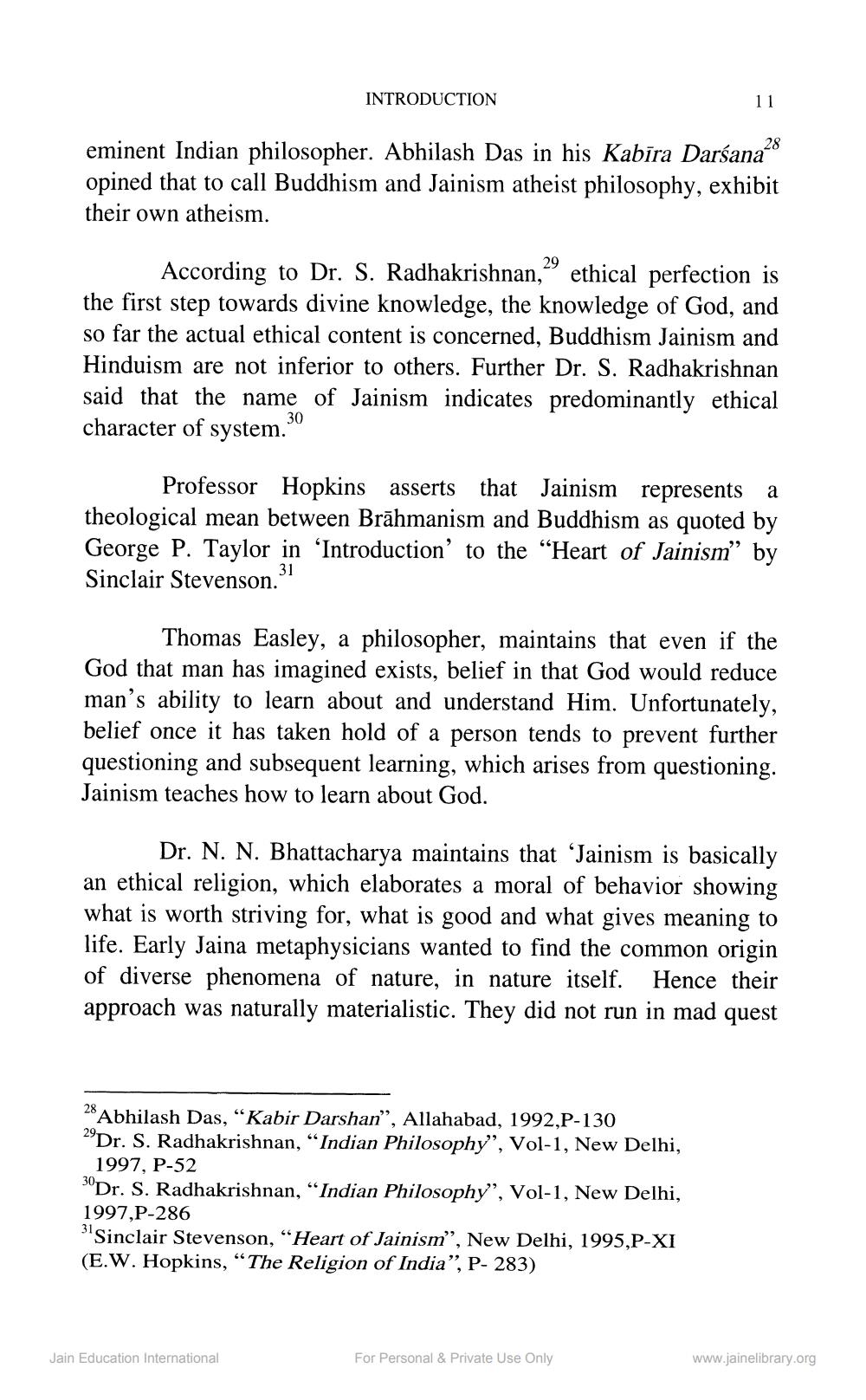________________
INTRODUCTION
eminent Indian philosopher. Abhilash Das in his Kabīra Darśana28 opined that to call Buddhism and Jainism atheist philosophy, exhibit their own atheism.
According to Dr. S. Radhakrishnan,29 ethical perfection is the first step towards divine knowledge, the knowledge of God, and so far the actual ethical content is concerned, Buddhism Jainism and Hinduism are not inferior to others. Further Dr. S. Radhakrishnan said that the name of Jainism indicates predominantly ethical character of system."
Professor Hopkins asserts that Jainism represents a theological mean between Brāhmanism and Buddhism as quoted by George P. Taylor in 'Introduction to the “Heart of Jainism” by Sinclair Stevenson.31
Thomas Easley, a philosopher, maintains that even if the God that man has imagined exists, belief in that God would reduce man's ability to learn about and understand Him. Unfortunately, belief once it has taken hold of a person tends to prevent further questioning and subsequent learning, which arises from questioning. Jainism teaches how to learn about God.
Dr. N. N. Bhattacharya maintains that “Jainism is basically an ethical religion, which elaborates a moral of behavior showing what is worth striving for, what is good and what gives meaning to life. Early Jaina metaphysicians wanted to find the common origin of diverse phenomena of nature, in nature itself. Hence their approach was naturally materialistic. They did not run in mad quest
28 Abhilash Das, “Kabir Darshan”, Allahabad, 1992,P-130 - Dr. S. Radhakrishnan, “Indian Philosophy, Vol-1, New Delhi,
1997, P-52 3°Dr. S. Radhakrishnan, “Indian Philosophy”, Vol-1, New Delhi, 1997,P-286 "Sinclair Stevenson, “Heart of Jainism”, New Delhi, 1995,P-XI (E.W. Hopkins, “The Religion of India”, P-283)
Jain Education International
For Personal & Private Use Only
www.jainelibrary.org




